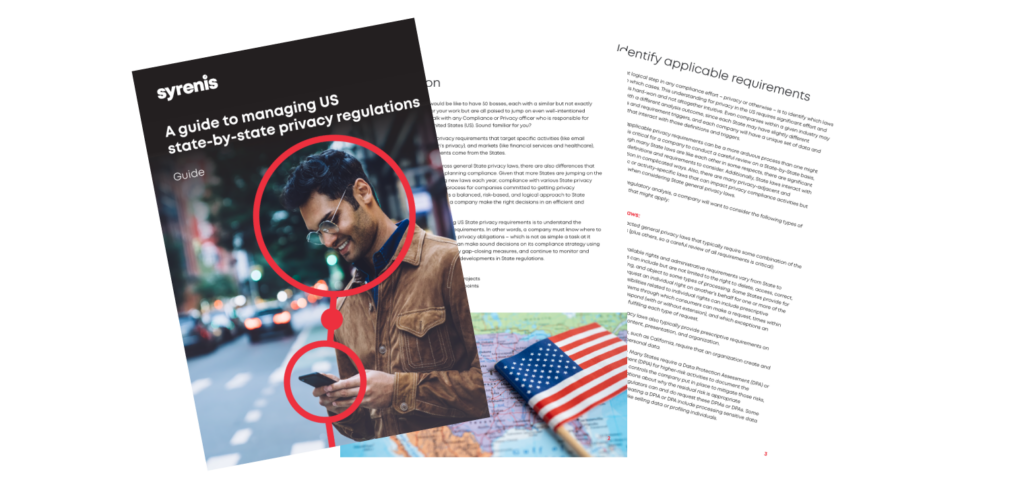In July 2025, Healthline Media was fined $1.55 million by the California Attorney General – the largest CCPA settlement to date.
The latest in a string of CCPA violations, this landmark case is more than a headline; it’s a signal to every enterprise that consent and preference management is no longer optional, especially in healthcare and insurance.
- What went wrong?
- Why Consent Management is critical
- Actions for Healthcare enterprises
- The strategic value of Consent and Preference Management Platform
What went wrong?
Healthline’s violations reveal common pitfalls that many organizations face:
1. Broken opt-out mechanisms
Healthline had privacy disclosures in place, but their opt-out tools didn’t function as promised. Consumers attempted to opt out using cookie banners, webforms, and Global Privacy Control (GPC) signals.
However, these mechanisms often failed to stop data from being shared. In fact, over 118 cookies and tracking pixels were still firing data to third parties, even after users had opted out. This failure to honor consumer choices is a direct violation of the CCPA’s requirement to provide a clear and functional “Do Not Sell or Share My Personal Information” option.
2. Deceptive cookie controls
Healthline’s cookie banner claimed users could disable advertising cookies, but in practice, the controls didn’t work. Under California law, such misleading practices are now considered deceptive business practices, compounding the legal risk. This case sets a precedent: if your privacy tools don’t do what they say, you’re not just non-compliant; you’re deceptive.
3. Misuse of sensitive health data
This was the first CCPA enforcement action specifically targeting health-related information. Healthline shared article titles like “You’ve Been Newly Diagnosed with MS” with third-party advertisers – data that could easily be linked to a user’s health status.
Even though disclosures were made, the California Attorney General ruled that this violated the CCPA’s “reasonable consumer expectation” standard. In other words, just because you disclose something doesn’t mean it’s allowed. Some uses of sensitive data may require explicit opt-in or be prohibited entirely.
4. Vague and non-compliant vendor contracts
Healthline’s contracts with third-party vendors used ambiguous language like “for purposes contemplated,” which failed to meet the CCPA’s requirement for specific statutory language. This is a critical reminder that contractual clarity is just as important as technical compliance. If your vendors are processing data on your behalf, your contracts must clearly define the scope, purpose, and legal basis for that processing.
Why Consent Management is critical
Consent in healthcare is uniquely complex. Patients often face barriers to informed decision-making due to language, cognitive ability, emotional distress, or urgency. Add to that the challenge of managing consent across multiple jurisdictions, platforms, and data types – from EHRs and wearables to genomics and telehealth apps. Not to mention, with many providers still relying on paper-based consent, digitizing patient choice is a necessary strategic move that healthcare organizations must adopt.
Even more concerning, many consumers mistakenly believe their health data is protected under HIPAA. But most health and fitness apps fall outside HIPAA’s scope, leaving sensitive data exposed unless covered by state-level laws like California’s CMIA, Washington’s My Health My Data Act, or Connecticut’s Data Privacy Act.
Actions for enterprises
To stay compliant and build trust, organizations should:
- Test opt-out tools regularly: Monthly validation ensures mechanisms function as they should, stopping data flows as opposed to just updating settings.
- Establish a cookie governance program: Track every pixel, cookie, and vendor. Know what data is collected, where it goes, and whether contracts are compliant.
- Audit vendor contracts for CCPA-specific language: Ensure agreements include required legal terms and align with your privacy notices.
The strategic value of Consent and Preference Management Platforms
With this latest $1.55M fine against Healthline Media, following enforcement actions against Todd Snyder and Honda, the message from regulators is crystal clear: ignoring consent is no longer an option.
For too long, some enterprises have gambled on a “wait and see” approach, treating consent as a checkbox or a compliance afterthought. That strategy is now a liability. Regulators are enforcing, consumers are watching, and the cost of inaction is rising.
Consent and preference management goes beyond compliance, and instead becomes a strategic enabler for businesses. It helps enterprises:
- Centralize consent across systems and jurisdictions
- Honor user preferences in real time
- Maintain audit trails for regulators
- Enable compliant personalization and data activation
As state laws are multiplying and consumer expectations are rising, comprehensive, centralized content is the key to avoiding fines and unlocking trust.


